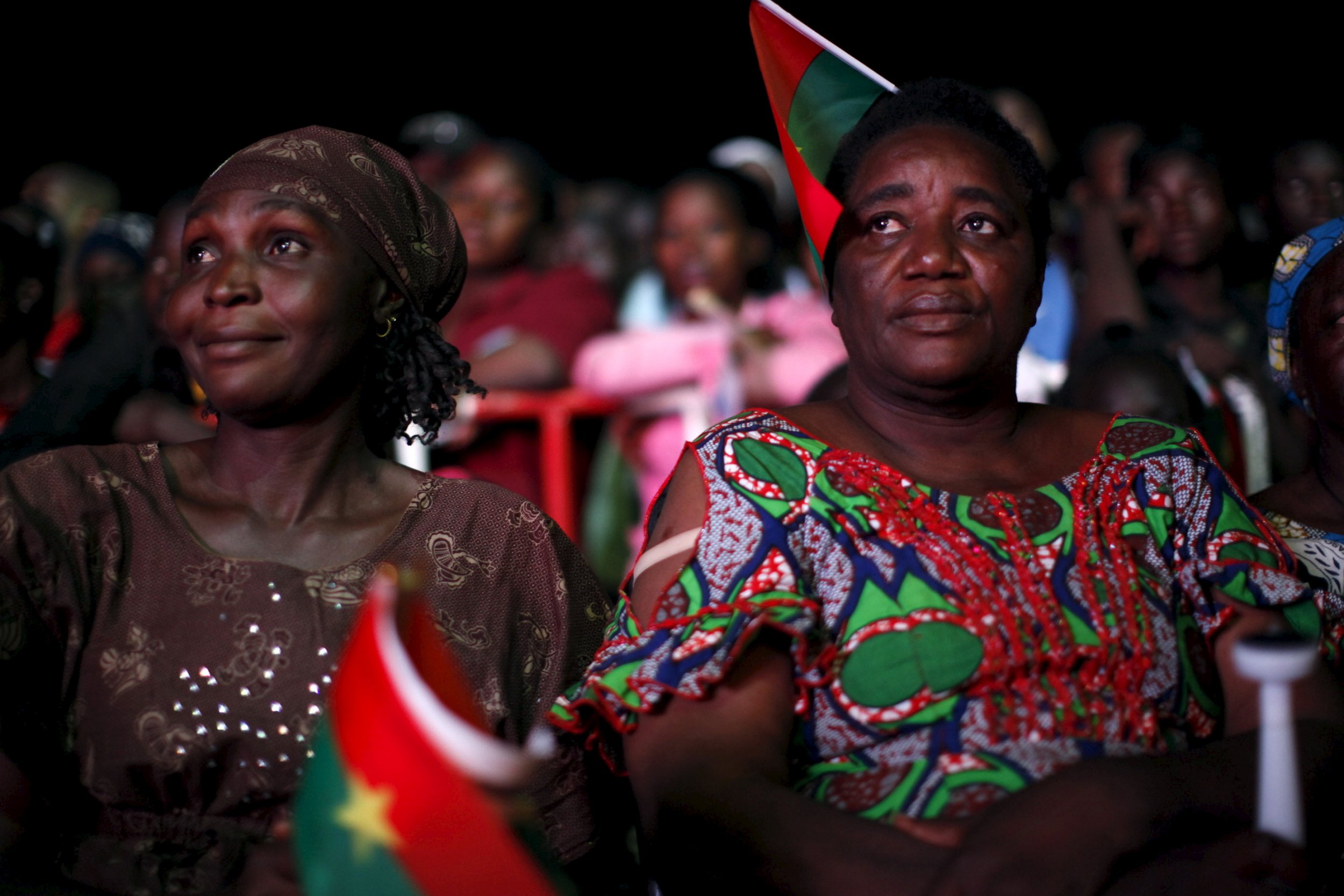
Only a year after a popular uprising ended the 27-year rule of former President Blaise Compaore, and less than three months after a failed coup threatened to hijack the revolution, Burkina Faso has gone to the polls.
An estimated 5.5 million people voted in peaceful presidential and legislative elections on November 29, reportedly choosing former Prime Minister Roch Marc Christian Kabore to lead the government.
On the surface, the holding of the first free and fair presidential elections in 35 years should be viewed as a victory for the Burkinabe people and for democracy in Africa as a whole. However, elections will form only one of the steps needed to create a viable and self-sustaining democracy in Burkina Faso—a name that means "land of upright people."
Compaore ruled Burkina Faso for nearly three decades following a coup that led to the mysterious assassination of revolutionary hero Thomas Sankara. He was able to remain in power for so long through a complex web of corruption, patronage, cronyism and effective continental meddling. However, Compaore's decision to amend the constitutional article limiting presidential terms provoked mass civil protests in late October 2014, which ultimately led to the dissolution of the government and the abdication of the president on October 31 last year.
A transitional government took charge in the wake of the overthrow of Compaore, headed by President Michel Kafando and Prime Minister Yacouba Zida, a retired colonel from the powerful Presidential Security Regiment (RSP). Together they were tasked with implementing the reforms necessary to allow for elections, which were originally slated for October 11 of this year. However, the failed coup led by General Gilbert Diendere and loyalist soldiers of the RSP in September forced polling day to be delayed. Crucially, the failed coup demonstrated that there remained elements within the country, including within the politically powerful military, which remained wary of reform.
At present, initial election results indicate that Kabore received 53.5 percent of Sunday's vote, avoiding the need for a runoff poll. Kabore served as prime minister between 1994 and 1996, and was a former leader of Compaore's Congress for Democracy Party (CDP) before resigning and forming his own party, the Movement of People for Progress (MPP), in objection to the president's attempts to change the constitution.
Despite Kabore's recent disavowal of Compaore's regime, he was closely allied to the previous government for 25 years and his MPP party is primarily made up of disaffected former allies of Compaore. Indeed, his successful performance in the polls may indicate that elements of the previous regime are not all that unpopular.
Compaore's CDP party was barred from fielding a candidate in the presidential election and so the true influence of those loyal to the past regime may only be measured in the performance of the party and its close ally, the ADF-RDA, in the legislative polls that will be released on the evening of December 1. A strong legislative performance by the CDP and ADF-RDA may prove to be a key constraint for any incoming government wishing to pass transformative legislation.
Democracy should deliver a proportional depiction of the will of the masses. It is noteworthy that free and fair polls have resulted in the election of a figure who—despite a period in opposition and a commitment to prevent his background from ushering in a period of reform—is also easily linked to the ousted previous regime. This result may prove to be positive in terms of Kabore's practical knowledge of the inner workings of government and established links to the networks of power and patronage that have ruled the country for so many years. However, it may also indicate that the revolution has completed a full circle, and that the population desires an established leader.
The shadow of the former regime is likely to taint the newly-elected Kabore. And here lies the core challenge to progress in Burkina Faso. A popular revolution has brought elections, but can elections bring prosperity to the Burkinabe?
The incoming government will be tasked with addressing the core failings of the previous regime and delivering measureable progress to a youthful population, while finding the correct mechanisms for dealing with the patronage networks that have dictated the functioning of the country for so long. Kabore will be challenged to improve the life standing of a very impoverished population—Burkina Faso has a GDP per capita of $713, making it one of the 20 poorest countries in the world—which has learned that it maintains the power to shift its political reality.
The Burkinabe have demonstrated their commitment to the ideals of democracy, twice standing up to seemingly all-powerful institutions and demanding change. It is this commitment that has seen civil revolution lead to democratic elections. It now falls onto the shoulders of the upright people to hold their democratically-elected government accountable to the ideals of their revolution, so that Burkina Faso may finally witness the progress it deserves.
Frank Charnas is CEO of AfriQue Consulting Group, a sub-Saharan Africa focused geopolitical, security and economic risk mitigation company. He tweets @frankcharnas.
Uncommon Knowledge
Newsweek is committed to challenging conventional wisdom and finding connections in the search for common ground.
Newsweek is committed to challenging conventional wisdom and finding connections in the search for common ground.
About the writer
To read how Newsweek uses AI as a newsroom tool, Click here.








